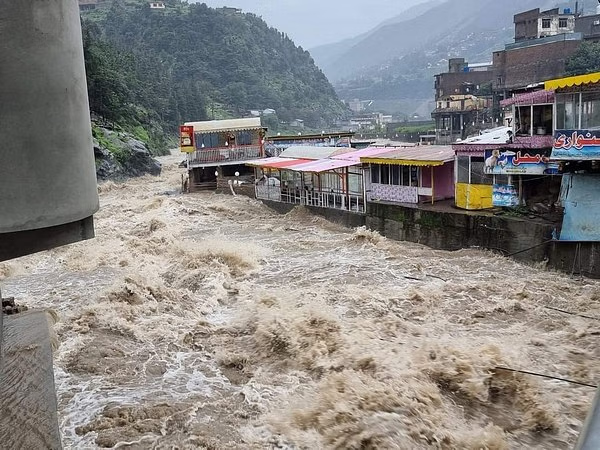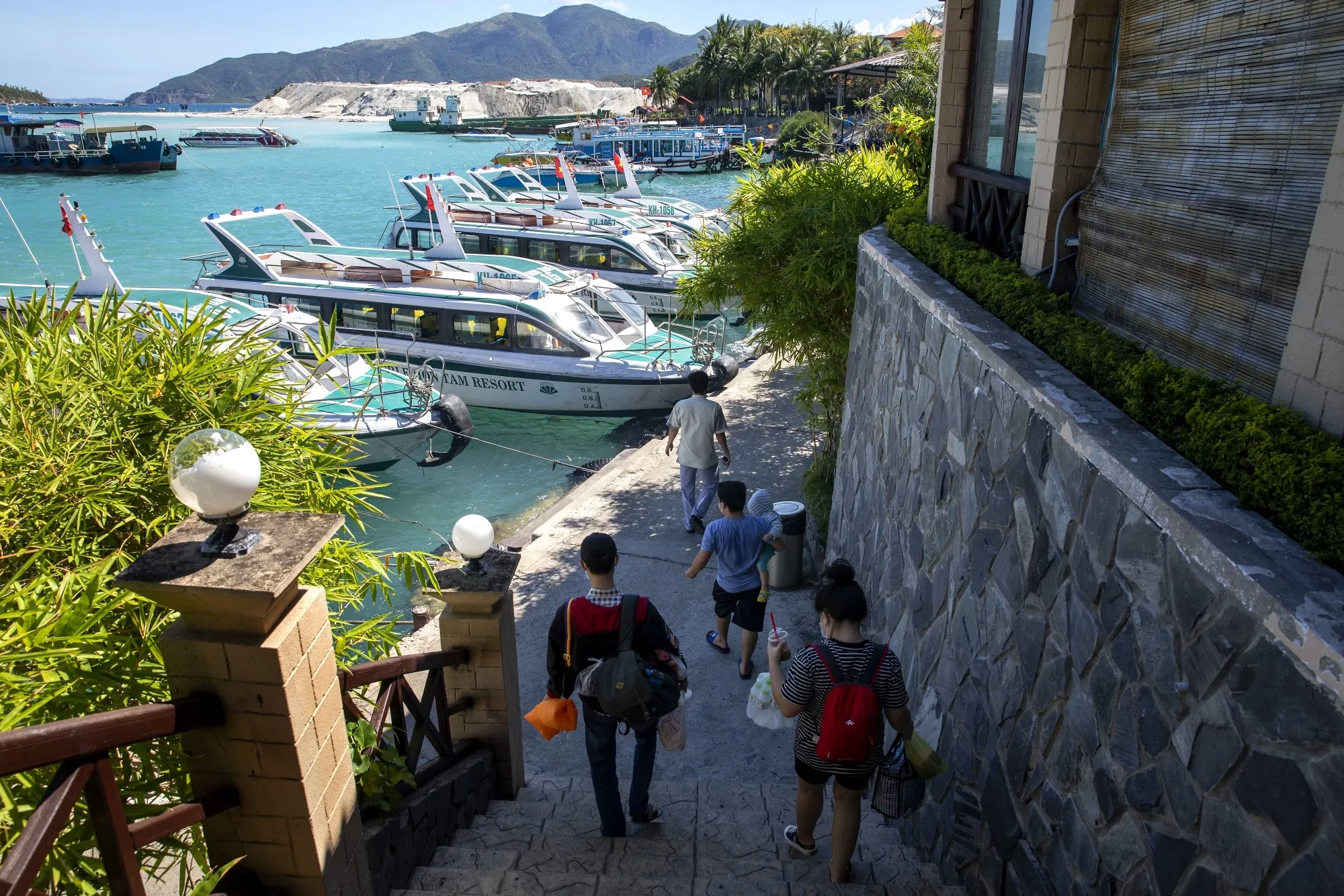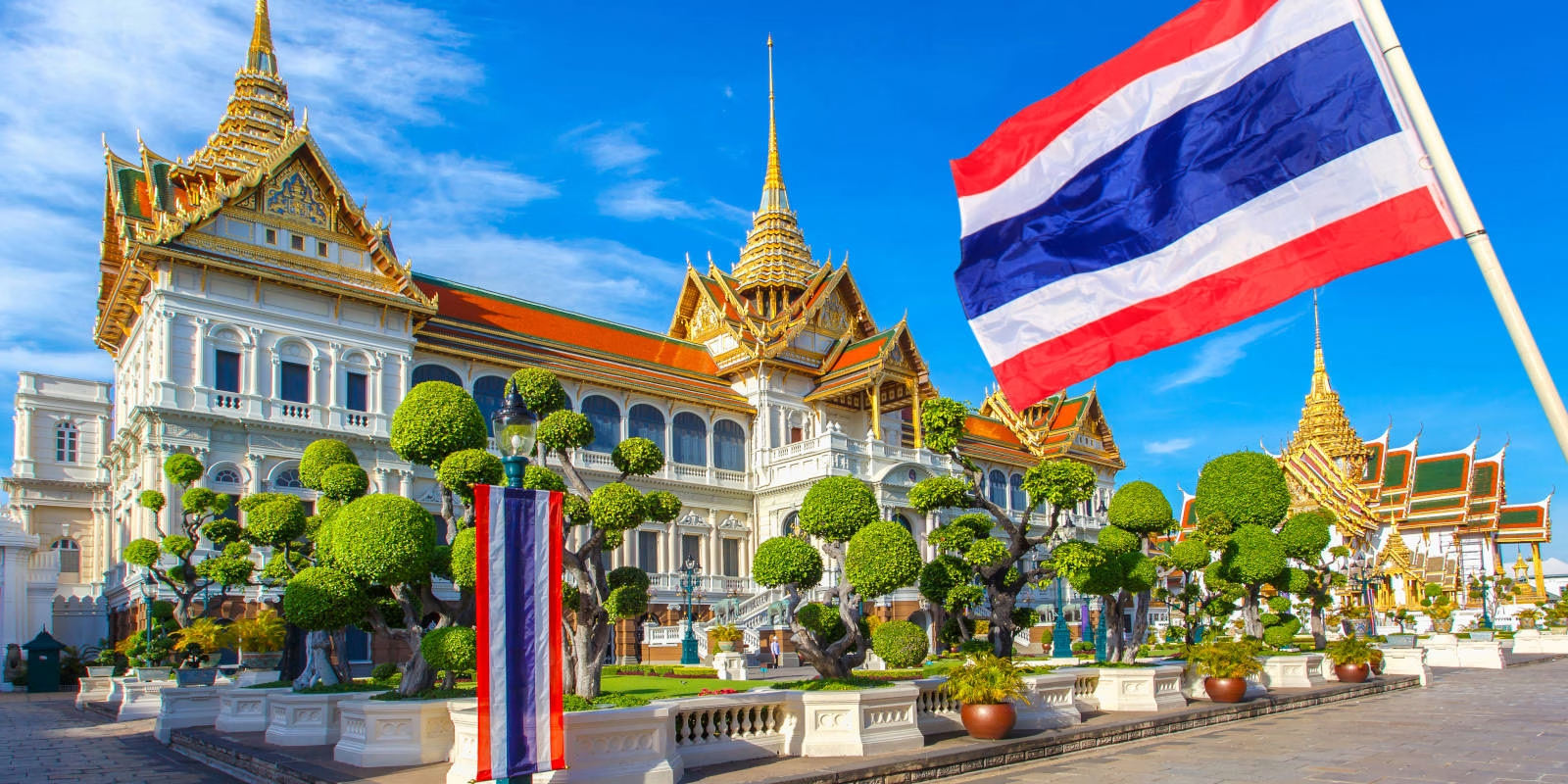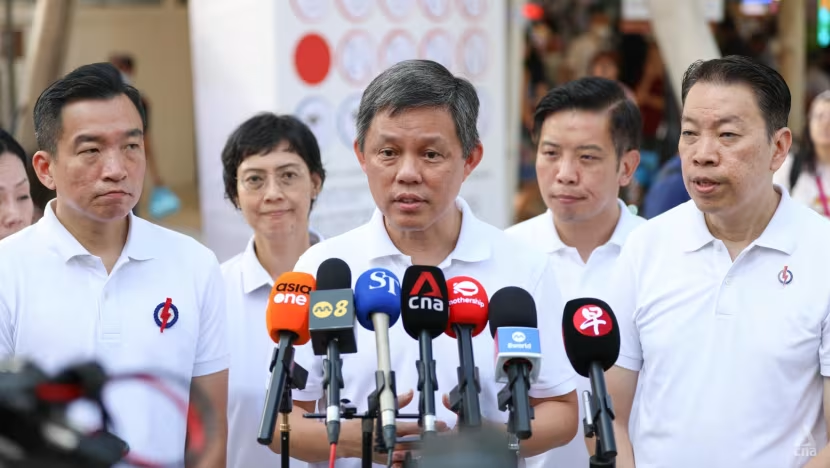
Tensions Soar As Jhelum River Overflows, Thousands Displaced Amidst India-Pakistan Diplomatic Breakdown
By Asia Fronts | Published: April 28, 2025
In an unprecedented move, Pakistan on Sunday declared a state of emergency in Muzaffarabad, the picturesque yet politically sensitive capital of Pakistan-Occupied Kashmir (PoK), after the Jhelum River breached its banks following what Islamabad termed a “sudden, deliberate water release” by India. This incident has intensified concerns about India-Pakistan relations.
Thousands of residents were evacuated overnight as floodwaters swallowed homes, roads, and fields, leaving the city grappling with one of the worst natural disasters in recent memory. The situation, however, is far from “natural,” officials claim, accusing New Delhi of weaponizing water in retaliation for recent terror attacks in Indian Kashmir.
As viral videos flooded social media — showing raging torrents tearing through the valleys — the world woke up to a new fear:
⚡ Has water become the newest weapon of war between India and Pakistan?
The ongoing tensions between India and Pakistan highlight the fragile state of diplomatic relations in the region.
This new escalation adds to the long history of disputes between India and Pakistan, which often find their roots in water-sharing conflicts.
🌊 The Day the Jhelum Turned Into a Monster
What began as a tranquil Sunday morning turned into a scene of absolute chaos by noon.
Eyewitnesses described a terrifying roar echoing through the valleys as the Jhelum River, already swollen due to seasonal snowmelt, suddenly surged with an unprecedented volume of water.
“It was like a tsunami. Within minutes, entire streets vanished,” said Sajjad Ahmed, a school teacher from Muzaffarabad, whose home was swept away.
Officials scrambled to issue flood warnings, but the speed and intensity of the deluge left little time for organized evacuations.
By nightfall, the once-thriving city lay submerged under murky brown water.
🏛️ Historical Backdrop: Water, Wars, and Warnings
Tensions over river water are not new to the subcontinent.
Since the 1960 Indus Waters Treaty (IWT) — brokered by the World Bank — both India and Pakistan have navigated their disputes over water sharing with caution.
The Treaty allocated the eastern rivers (Beas, Ravi, Sutlej) to India and the western rivers (Indus, Jhelum, Chenab) to Pakistan.
But recent developments have strained this delicate balance.
Following the Pahalgam terror attack (April 2025), which killed 26 Indian tourists, India’s government suspended participation in the IWT, signaling that water could no longer remain neutral in an environment of continued hostility.
With the water crisis escalating, how India responds could have lasting impacts on regional stability.
“We cannot be expected to honor treaties with those who sponsor terrorism,” declared India’s External Affairs Minister S. Jaishankar at a press conference last week.
🔥 Timeline: How the Disaster Unfolded
| Date | Event |
|---|---|
| April 23, 2025 | India suspends cooperation on Indus Waters Treaty post-Pahalgam attack. |
| April 25, 2025 | Indian water authorities release higher-than-usual water volumes from Uri Dam without notifying Pakistan. |
| April 26, 2025 | First signs of Jhelum River swelling observed near Chakothi. |
| April 27, 2025 | Full-blown floods hit Muzaffarabad; emergency declared by Pakistan. |
🏘️ Ground Reality: Fear, Loss, and Anger
On the ground in Muzaffarabad, scenes of devastation are everywhere.
- Over 15,000 families displaced
- More than 300 villages affected
- Vital infrastructure — including hospitals, schools, bridges — has been heavily damaged.
Inside Relief Camp No. 4, located on higher ground near Domel, Zahida Bibi, a mother of three, fights back tears as she recounts her ordeal.
“We lost everything… my house, my husband’s small shop. How will we survive?”
Medical teams are stretched thin, struggling to manage the outbreak of waterborne diseases like cholera and typhoid.
Relief supplies trickle in, but residents complain that government response is slow and international aid absent.
🇮🇳 India’s Position: “Within Our Sovereign Rights”
In Delhi, Indian officials have categorically denied any wrongdoing.
“The suspension of the Treaty was a sovereign decision. Water releases are routine and necessary for dam safety,” said India’s Water Resources Secretary Ravi Kumar.
Indian sources argue that Pakistan had been warned privately through backchannels, and that Islamabad is exaggerating the situation to gain global sympathy.
Meanwhile, domestic Indian media hailed the move as a “watershed moment” in India’s assertive foreign policy against terror sponsors.
Hashtags like #WaterForWater and #NoTerrorNoWater trended across X (formerly Twitter).
🇵🇰 Pakistan’s Response: “An Act of Water Terrorism”
India’s actions will not only affect its own citizens but also have repercussions for those living across the border in Pakistan.
The international community is closely monitoring how India handles these tensions.
Pakistan’s Prime Minister Shehbaz Sharif, addressing the nation, called the flooding:
In this context, India’s foreign policy will be scrutinized for its effectiveness in managing such critical issues.
“An act of water terrorism by India — a blatant violation of international law and human rights.”
Islamabad has formally lodged complaints with:
- The United Nations Security Council
- The International Court of Justice (ICJ)
- The Organisation of Islamic Cooperation (OIC)
In his address, Sharif demanded “global intervention before matters spiral out of control.”
Pakistan’s allegations against India could further complicate an already tense situation.
🌍 Global Reaction: Warnings and Worries
- United Nations Secretary-General António Guterres urged “maximum restraint” and offered to mediate.
- China, Pakistan’s all-weather ally, condemned India’s actions as “reckless and destabilizing.”
- The United States expressed “deep concern” and called for urgent diplomatic talks.
In Washington, State Department spokesperson Matthew Miller stated:
“The world cannot afford another flashpoint between two nuclear-armed nations.”
This could lead to increased calls for intervention from international bodies regarding India-Pakistan relations.
🛡️ Analysis: Is Water the New Weapon?
Experts warn that weaponizing water could unleash a dangerous new form of hybrid warfare.
“Water wars were once fiction. Now, they are terrifyingly real,” said Dr. Imran Haider, a South Asian geopolitics expert at Columbia University.
Key Points:
- Water is vital for both India’s and Pakistan’s agriculture-dependent economies.
- Retaliatory water strategies could trigger mass displacement, famine, and regional instability.
- The Indus Waters Treaty — often cited as a rare example of India-Pakistan cooperation — now teeters on the edge of collapse.
👥 Humanitarian Crisis: Real Stories From the Flood Zone
Inside the flooded alleys of Muzaffarabad:
- Children cling to rooftops awaiting rescue.
- Elderly citizens are carried through waist-deep waters.
- Doctors operate makeshift clinics in tents.
Relief worker Faisal Mahmood says they have no boats, no medicines, and no clean water.
“If help doesn’t come fast, we’re staring at a humanitarian catastrophe.”
🔮 What Happens Next?
Scenarios being discussed:
| Scenario | Possibility |
|---|---|
| Diplomatic talks resume under international pressure | Medium |
| Full-blown water retaliation from Pakistan | High |
| Military confrontation along LoC | Moderate |
| Collapse of the IWT permanently | Possible |
🧠 Expert Opinions
- Dr. Ayesha Khan, Water Conflict Researcher: “We need a new treaty fit for climate change, terror threats, and changing geopolitics.”
- Brigadier (Retd.) Aman Gill, Indian Strategic Expert: “India sending a strong message: There’s a cost for supporting terrorists.”
- Lisa Parker, Humanitarian Worker: “Ordinary people — not governments — pay the price when rivers become weapons.”
🕊️ Conclusion: The World Must Act Now
The images from Muzaffarabad are haunting reminders that nature knows no borders, but politics often ignores that truth. The ongoing conflict between India and Pakistan underscores this reality.
Without urgent international diplomacy, the floodwaters that washed away homes yesterday could wash away regional peace tomorrow.
As India and Pakistan inch closer to an unpredictable showdown, the world must ask itself:
“Can two nuclear powers really afford to make water a weapon?”
In a region thirsting for peace, not blood, the answer must be a resounding NO.




